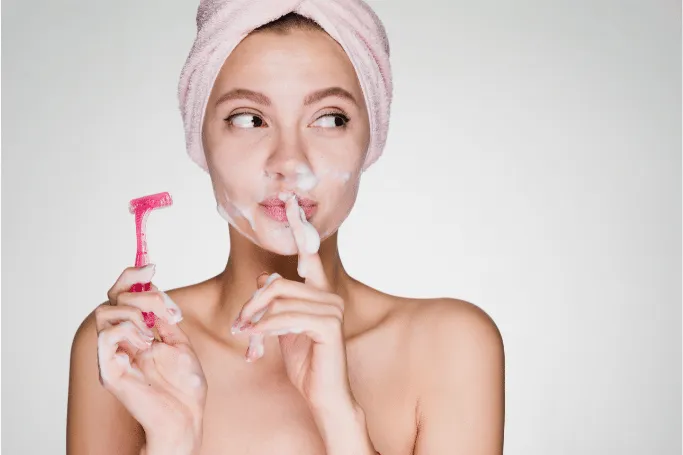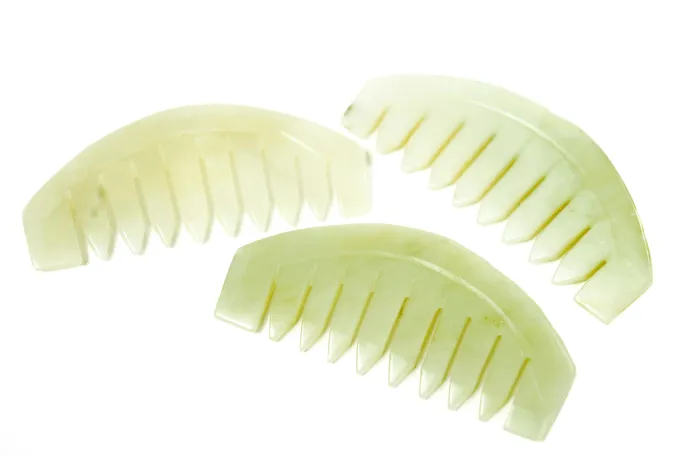How to get a Healthy, Shiny and Strong Hair Locks

Many of us overlook our hair, which is located at the very top of our bodies, even though we work to keep ourselves in good health from head to toe. However, there are valid reasons for wanting to maintain healthy hair. One of the first things people notice about us when they meet us is our hair, according to Jessica Walker, hairstylist and owner of J. New Jersey's Walker Salon Group She continues, "Our hair determines so much of our confidence and how we feel on the inside and out.
In addition to helping with self-esteem, having healthy hair is crucial for maintaining other aspects of good health. Debra Wattenberg, MD, a board-certified dermatologist in New York City, claims that "our hair shields us from the cold, insulates our head, and gives some cushioning against impact." Additionally, your hair may provide insight into your general health. For instance, sudden hair loss may indicate an autoimmune illness or that you're under too much stress.
The Icahn School of Medicine at Mount Sinai in New York City's associate professor of dermatology and board-certified dermatologist Angela Lamb says, "Your hair can be an extension of your cleanliness and can also signal vitamin shortages and things going on within." According to Lamb, "untreated chronic skin disorders like eczema, seborrheic dermatitis, and alopecia can cause itching, irritation, and unhealthy hair and scalp." Simply said, caring for your hair and wanting to maintain it healthy are important for many reasons outside just wanting to look nice.
Learn here how to maintain your hair in the greatest condition so that it remains wholesome and vibrant.
What Exactly Is Hair?
A significant protein found in hair, known as keratin, is a thin strand or filament. The inside shaft of hair also contains some lipids, which are fats. A cuticle, which is composed of dead cells and covers each strand of hair, helps to protect it.
Why Proper Hair Care Is Important
In addition to boosting your confidence, hair has health benefits. When it's cold outside, hair keeps you warm, and when it's hot outside, it helps wick away sweat. Additionally, it helps cushion your fall and could shield your head from the sun.
Speaking of the scalp, it also has a significant impact on your health. To start, the scalp is made of soft tissue, and it gives you a place for hair to develop (hello, hair follicles! ), as well as guards you against outside invaders who can infect you.
Sebum, the oil that the scalp produces, has an antibacterial effect and helps shield the skin from the sun. However, Dr. Wattenberg points out that the oils can also lead to odor and illness, so you need maintain good hair hygiene!
What Does Hair in Good Health Look Like?
There are numerous indications of healthy hair, just as there are many different hair kinds. According to Lamb, "healthy hair" is hair that is growing to its full potential and is free of breakage and split ends. So, for instance, if you have curly hair, it might not be'shiny,' but as long as you do not experience excessive loss or breakage during washes, Lamb continues, your hair is healthy.
Although they might not apply to all hair types, these are some of the primary indications of healthy hair, according to the experts consulted. We must be careful not to define hair health in terms of certain cultural norms, warns Lamb.
-Shows minimal shedding and little breakage
-Is not broken when brushed
-Is devoid of dandruff
-Reflects light
-Exhibits shine and gloss
-It has dampness
Signs Your Hair May Be In Poor Health
Similar to how you can presumably sense when your hair is healthy, you can probably sense when anything is wrong. For instance, your hair may feel extremely dry or you may be losing more hair than usual.
According to celebrity hair colorist and founder of the TO112 beauty and lifestyle brand Luis Pacheco, there are universal signs of healthy hair, however the degree of these signs varies depending on the type of hair. For instance, naturally dehydrated hair types, such as kinky and curly hair or totally gray hair, will be prone to dryness; however, if it begins to split or feel brittle, you need to check into the issue, advises Pacheco.
Find out the symptoms of damaged hair here, albeit they may differ based on your hair type:
-The hair is brittle.
-Lots of hair is removed when running a brush or comb through it.
-Big clumps of hair fall out.
-You have visible bald spots or can easily see your scalp.
-The strands break at mid shaft.
-The hair lacks luster or shine.
-It is split at the ends.
-It is hard to detangle.
-It is drier than normal.
Guidelines for Hair Care: Dos and Don'ts
While different hair types necessitate various approaches to maintenance, one universal truth remains: it's critical to give your hair some tender loving care. Find out what to do and what not to do to maintain the health of your hair here.
Avoid over-processing your hair
Regardless of the color, texture, or genetics of the hair, overprocessing is harmful, according to Wattenberg. Background: Bleaching your hair or using relaxers or hair dye inappropriately can cause overprocessing. According to Wattenberg, overprocessing causes disulfide bonds to dissolve, which in turn causes hair to fall out. The chemical links that hold the proteins in your hair together and give it strength are called disulfide bonds.
For instance, one study discovered that over-bleaching or over-dying your hair can weaken the protein, promote lipid loss, and damage the cuticle layer. As a result, the majority of experts advise skipping the bleach and delaying color touch-ups (in the winter, they suggest waiting as long as 8 to 10 weeks).
Do Select Shampoo and Conditioner Specifically Designed for Your Hair Type
There are probably products for every hair type available if you browse the hair care section of your neighborhood retailer (and every hair issue). They're not just a gimmick, it turns out. According to Wattenberg, "These goods are quite specialized and can make a world of difference." Do you have an oily or dry scalp? Do you color your hair? Have you got dandruff? Choose the shampoo and conditioner that are specifically formulated for you, she advises. For instance, the American Academy of Dermatology suggests that individuals with dandruff use a shampoo that has been particularly developed to assist treat and control it.
Avoid over-drying your hair
Is there any way to overprocess? Frequently using hot styling tools and your hair dryer According to Wattenberg, blow dryers, curling irons, and flat irons can burn your hair and scalp as well as cause your hair to break and bald.
The surface of the hair got more damaged as the temperature of the hair drier increased, according to previous studies that examined the consequences of using hair dryers at different temperatures. In order to minimize damage, the study's authors advise using a hair dryer at the lowest setting at a distance of 15 centimeters. Additionally, move the gadget continuously rather than remaining still for extended periods of time.
Most of us are worried about protecting our skin from the sun from head to toe, but do you ever consider your scalp and hair? You ought should! According to Wattenberg, color-treated hair can change colors in the sun, but the scalp can also become burned. Even while certain ultraviolet radiation that can cause cancer are blocked by the hair, having bald spots or a portion in your hair doesn't help you stay protected. What's the remedy? Wattenberg suggests "wearing a hat or using an SPF sunscreen tailored for the scalp." Be aware that the sun might also harm your actual hair, possibly weakening the hair fiber and cuticle in addition to discoloring it.
Don't swim with your hair unprotected
Even while swimming is a terrific form of exercise, spending a lot of time in the pool is bad for your hair. Chemicals in the pool might dry out and aggravate your hair, according to Wattenberg.
She suggests donning a helmet or applying conditioner before diving in. To ensure that your hair absorbs the chlorine-free water rather than the water that is chemically-filled, it is also a good idea to wet your hair with fresh water before conditioning it. Even better, invest in some swimming-specific shampoo and conditioner to assist replenish any moisture that may have been lost from your hair.
Avoid vigorously brushing your hair
Even though you might be tempted to remove every last knot, brushing your hair too frequently might harm it, especially if you use all of your strength.
Brush carefully as much as possible to avoid damage. Although you should ask your stylist whether there is a specific brush that is appropriate for your hair type, the ideal brush to use is one with wide teeth and smooth prongs.
If you have long hair, hold the bottom section in place as you gently run the brush through the ends. Then, raise your hand and keep brushing beneath it.
Do your own research before purchasing products.
Hair care treatments generally contain a shockingly large list of components, not all of which are, to put it mildly, healthy.
Although additional research is required to determine whether hair dye alone increases the risk of breast cancer, one study found a potential link between breast cancer and personal use of hair dye (i.e., items purchased over the counter).
According to the study, white women who used permanent hair dye once or more throughout a 12-month period had a 9 percent increased risk of breast cancer than those who didn't. A 45 percent higher risk was present for black women who used permanent hair dye once or more per month as compared to non-users. There were 46,709 participants in the study.
The authors suggest that the ingredients in hair dye may contribute to the emergence of breast cancer. Before you purchase any hair product, it is worthwhile doing a little study to help maintain your hair (and body) healthy.
However, a separate, longer, and larger investigation found no association between hair dye use and the chance of developing cancer.
Research findings are contradictory, according to the American Cancer Society.
Check out websites like the Environmental Working Group, which has a database of better-for-you hair care products created without the most harmful chemicals, and ask your hairstylist what is in the hair dye they use. But keep in mind that the Environmental Working Group holds radical views on various health issues, according to some experts.
Don't skip a haircut for too long
It's not simply to keep you as a frequent customer that your hair stylist recommended you go in for a haircut every few months. Regular haircuts prevent damage from the ends up since split ends weaken the hair and expose it to moisture loss and tangling, according to Pacheco. Walker advises getting a trim every six to eight weeks to avoid injury.
The same is true for those who want to grow their hair out. "If you're trying to grow your hair, you might be thinking about missing a trim — but reshaping and trimming your hair periodically maintains it appearing strong and healthy, rather than brittle and thin, while you go through the growing process," Walker adds.
Do Think About Using Silk Sheets
Silk pillowcases are popular right now, and with good reason. All hair types should think about using a silk pillowcase, advises Pacheco, to avoid rubbing the cuticle while you sleep. He continues, "This is especially helpful for fizz-prone, curly, kinky, and fragile hair types."
Keep braids, cornrows, and weaves from becoming too tight.
Your hair is probably being destroyed if it stings when it is pulled tightly. If your stylist tugs your hair too tightly, make sure to speak up and ask them to redo it. Repeated use of cornrows and tight braids can harm follicles permanently, possibly preventing future hair growth.
Do consult a specialist for relaxants
If you decide to use a relaxant, exercise cautious. Going to a professional is a smart choice since they can make sure the product is applied safely. Don't rush the intervals between touch-ups either. If you notice that your hair is breaking or falling out after treatments, you may want to avoid chemicals altogether. "Too many heat or chemical treatments can put stress on any hair type," says Lamb. Make sure that only new hair receives the relaxer (not hair that has already been relaxed).
Supplements and Foods for Healthy Hair
Did you know that the quality of your hair can be significantly impacted by the foods you consume? In order to maintain healthy hair, it's important to eat a balanced diet. According to Wattenberg, if your body is unwell, your hair may be the first indicator. On the other hand, yo-yo dieting, crash dieting, anemia, and hormonal imbalances can all have an impact on hair growth, texture, length, and luster, according to Wattenberg.
You don't absolutely need to take supplements, even though vitamins, protein, fatty acids, and minerals are all necessary for maintaining healthy hair. If you consume a diet that is well-balanced, you can typically absorb these in sufficient amounts through your food, according to Wattenberg.
According to Wattenberg, the following vitamins and nutrients are essential for healthy hair:
-Biotin
-Iron
-Zinc
-Vitamin C
-Vitamin D
-Protein
-Healthy fats (like omega-3 fatty acids)
Salmon, a good source of protein, omega-3 fatty acids, and vitamin D, is one of Wattenberg's favorite foods. Because so much of your hair is made of protein, it's a crucial nutrient for developing your hair. "I'm also a huge supporter of eggs — they are a terrific way to obtain protein and biotin." Meanwhile, good fats keep your hair hydrated and in top condition.
What other meals are powerful for hair? "Add beef, spinach, lentils, and chickpeas to your meal for iron, and make sure to eat lots of citrus fruits, bell peppers, and greens for vitamin C, which is essential for collagen creation. It is necessary for the health and growth of hair.
You might want to discuss supplementing with your doctor if you don't eat a balanced diet or are worried that you aren't receiving enough of these vitamins. According to Wattenberg, in addition to taking each supplement separately, you may also purchase a single pill that has all of these nutrients and is intended only for hair. You may have seen these advertised on Instagram or in your neighborhood pharmacy.
It's important to keep in mind that supplements are not regulated in the United States and may interact with other supplements. similar to how traditional medicines are regulated by the Food and Drug Administration. Though you may have heard otherwise in product marketing, studies are inconclusive about whether taking biotin supplements can help with hair growth. As a result, it's important to speak with your doctor before supplementing. In particular, supplements don't need to be approved before they are marketed and sold.
To Sum Up:
It's crucial to take care of your body by eating wholesome, well-balanced foods and exercising, just as it's crucial to take care of your hair. According to Pacheco, "Hair endures a lot throughout the day, so it's crucial that you give it some TLC with gentle and nourishing shampoos to promote a healthy scalp, conditioners to restore elasticity and strength, and protectants to withstand all you throw at your hair in an average day.
It's a good idea to "listen" to your hair and pay attention to what it's trying to tell you. According to Pacheco, a person's hair can give away information about their general health. Unexpected hair loss, breakage, and the sensation of dry, brittle hair may all be signs of underlying health issues, says Pacheco.
As a result, hair is more than just a style for the top of your head; it's a reflection of your general health and should be cared for with the same mindfulness as the rest of your body.
Related posts



